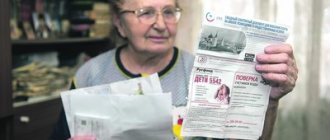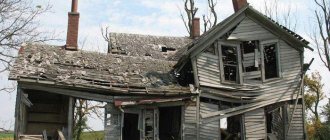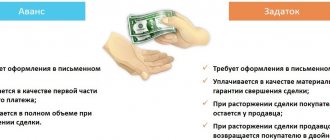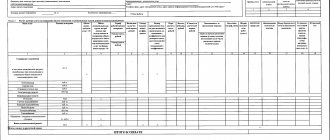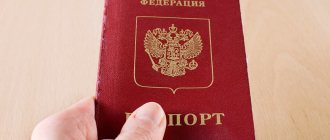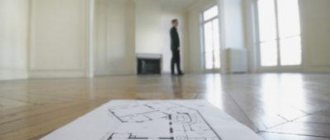Rights and powers of the partnership
The HOA is authorized to carry out house management activities, that is, to carry out what the management company represented by the housing department or a commercial organization previously did.
In accordance with Article 137 of the Housing Code, the HOA has the right to take the following actions:
- enter into agreements with operating and management companies for home maintenance and provision of utilities;
- independently carry out work for the residents of the house (for example, homeowners associations can hire an entrance cleaner or organize independent garbage collection without resorting to the services of management companies);
- calculate expenses and income, determine the amount of funds needed for routine repairs of the building, payment of contractors, for the formation of a reserve fund, for major repairs;
- settle payments under an agreement with individuals or legal entities providing HOA services;
- use credit funds taken from a bank or from private individuals in the manner prescribed by law;
- sell, lease, exchange property, including real estate (this right allows, in particular, to collect fees from entrepreneurs renting retail or office space in the building);
- calculate rent based on cost estimates;
- collect rent from residents and tenants of residential premises;
- apply measures permitted by law to debtors for rent or rent.
A complete list of powers of the HOA must be listed in the organization's Charter . For example, the Charter may allow reconstruction and re-equipment of existing premises, transformation of the local area, parking equipment, etc.
Note! The rights of the organization listed in the Charter should not contradict the Housing Code, but can only supplement and expand its provisions as applicable to a specific situation.
The HOA board can exercise most of its rights independently, for example, calculating rent and distributing funds to bank accounts - this is the so-called routine work.
Control of the legality of all actions of the HOA is carried out by an audit commission consisting of 3-4 people who are not employees of the HOA and members of the board.
To carry out major changes, for example, in the structure of the HOA when changing the ratio of funds distributed among various funds, when re-equipping buildings, the board is obliged to convene a general meeting of residents and put the issue to a vote. Only with a majority of votes in favor does the partnership receive the right to carry out the declared activities.
Rights and powers of the HOA
A homeowners' association carries out its activities of managing an apartment building in a similar way to a management company, housing department or commercial organization.
According to Article 137 of the Housing Code of the Russian Federation, the partnership has the right to perform the following actions:
- concluding agreements with management and operating companies for maintenance of apartment buildings and provision of utilities to residents;
- calculation of income and expenses, determination of the amount of financial resources for carrying out current and major repairs of the facility, remuneration of contractors, formation of a reserve fund;
- independent performance of work for homeowners. For example, homeowners' associations independently, without resorting to the services of management companies, organize garbage and solid waste removal, hire entrance cleaners;
- settlements under contracts with legal entities and individuals who interact with the HOA;
- collection of rent from residents and tenants of residential premises;
- application of measures in relation to debtors within the framework of legislation;
- sale, rental, exchange of property;
- use of credit funds;
- calculating rent based on cost estimates.
The entire list of powers of the homeowners association is indicated in the Charter, including the obligation of the HOA to provide information to residents . Within the framework of this regulatory document, it is possible to re-equip and reconstruct existing premises, equip parking, and transform the adjacent territory.
The powers and rights of the HOA should not contradict the legislation of the Russian Federation, in particular the Housing Code. They can be slightly supplemented and expanded in relation to a specific problem.
The board of the partnership exercises most of its rights independently: for example, it distributes funds among bank accounts and calculates payments for utilities.
The audit commission controls the legality of the partnerships' actions . It consists of 3-4 people who are neither members nor employees of the HOA.
Significant changes in the structure of the organization, which affect the ratio of funds in various funds, are carried out on the basis of a vote of the general meeting of residents.
To perform a range of housework, you may need access to a certain living space. This issue is being resolved with a specific owner. Members of the organization have the right to access residential premises and common areas.
If the owner's consent is not obtained, entry into his apartment is possible only by court decision, for example, if it is necessary to collect a debt on rent. Enforcement measures are carried out not by the HOA board, but by bailiffs.
Interaction with owners
Often, when exercising the rights of an HOA, residents and board members have questions regarding the most problematic and controversial topics, including the relationship between the board and other owners.
Issuance of certificates
Sometimes tenants are faced with the fact that the board refuses to issue them certificates (about family composition or an extended extract from the apartment map) on the grounds that the owners owe rent. Does the HOA have the right not to issue certificates if there is a debt?
This is not a legal practice, which is often used by HOAs or management companies so that residents cover at least part of the debt. Issuing certificates is not a right, but an obligation of the HOA to its residents. This means that they are obliged to issue the necessary paperwork, even if the tenant has never paid his utility debt during the entire stay.
Breaking into an apartment
Another problematic question is whether the board or the chairman of the HOA has the right to inspect the apartment? The Constitution of the Russian Federation enshrines the right of citizens to the inviolability of housing.
Reference! Without the permission of the owner of the premises, no one can enter his premises, even if there is an emergency in the apartment.
There are only two cases when HOA employees can enter an apartment without permission:
- If there is a warrant.
- In the event of a threat of a terrorist attack or the occurrence of a natural or man-made disaster.
Thus, the board’s requirements for inspection of the premises under any pretext are taking meter readings, checking meters, measuring pressure in pipes, checking the temperature of the room, etc. - illegal.
A tenant can voluntarily let members of the board in, but if he is forbidden to enter, then nothing can be done about him.
Accrual of penalties
The HOA has the right to charge penalties for non-payment only if this is stated in the Charter adopted at the general meeting of residents. The accrual of penalties is a coercive measure designed to force the debtor to quickly pay the full payment for housing.
The procedure for imposing a fine does not come out of nowhere. It must be spelled out in the Charter. There are also special provisions of the Tax Code of the Russian Federation that determine the upper limits of penalties.
Attention! The amount of the penalty cannot exceed 1/30 of the current refinancing rate for each day of delay.
Signing the contract
Sometimes residents are outraged that the HOA forces them to sign service agreements.
In accordance with Article 137 of the Housing Code of the Russian Federation, HOAs have the right to enter into agreements with owners on utility services and the procedure for calculating payments.
In this case, the board has the opportunity, on behalf of the residents, to enter into various transactions with utility providers and fulfill its responsibility for maintaining the house. But the HOA has no right to force or coerce a tenant to sign an agreement ; everything must happen according to the good will of the parties.
If there is no HOA agreement with the owner, then the residents will simply have to go to the representative office of the operating company on their own and conclude the necessary agreements.
Disclosure of information about debtors
Lists of debtors, which the boards of the HOA sometimes post for public viewing in the entrances, often become a real stumbling block between the partnership and the residents. The outrages recorded in the “shameful” sheet are quite legitimate.
In accordance with the Personal Data Protection Law, disclosure of such information is expressly prohibited. Without written permission, the HOA board has no right to publish any information about debtors, including these:
- last name, first name and patronymic of the tenant;
- any passport data;
- residential address;
- amount of debt.
The board has the right to compile such lists for itself. Moreover. they are needed to identify debtors and conduct conversations with them, and in case of prolonged delays in payments, to go to court and seek to disconnect the apartment from the system of communal services of the house.
Such lists must be kept in a safe in a closed board room and are not subject to public disclosure. Debtors who see their name have every right to go to court and receive monetary compensation from the board.
The maximum that the HOA can do is publish an announcement with approximately the following content: “5 debtors live in our house. We ask them to pay utility debts in the total amount of 10,000 rubles by January 31 of the current year. Otherwise, we will be forced to go to court to forcefully collect the debt.”
How to hold a meeting of apartment owners in electronic format in the Moscow region
Meetings of owners of apartment buildings are organized to resolve important issues related to the management, maintenance, repair and use of common property. In the Moscow region, starting from 2020, such events can be held in electronic format through the Unified Information System for Housing and Communal Services of the Moscow Region. For more information on how to use the service, read the material on the mosreg.ru portal.
How to obtain a license to manage an apartment building in the Moscow region>>
Preliminary general meeting of owners
Source: Photobank of the Moscow region
Conducting electronic general meetings of owners through the Unified Information and Analytical System (UIAS) of the housing and communal services of the Moscow region is possible in houses included in the appropriate register.
To include a specific house in it, you must:
— clarify with the local administration the procedure for receiving messages about holding general meetings in electronic format;
— hold a preliminary meeting of owners the old fashioned way, offline, and make decisions at it on the use of the EIAS Housing and Communal Services of the Moscow Region for holding general meetings, on the appointment of an administrator for future electronic meetings and the procedure for receiving messages by him.
The originals of the decisions and the minutes of the preliminary meeting should be sent to the state housing supervision body, information about the meeting should be posted in the Unified Information System for Housing and Communal Services of the Moscow Region.
How to obtain permission to move a person into social housing in the Moscow region>>
Creation of a personal account in the Unified Information System for Housing and Communal Services of the Moscow Region
Source: Photobank of the Moscow region, Roman Vartsev
After entering the house into a special register, it is necessary to place information about the owners of the apartments in the EIAS Housing and Communal Services of the Moscow Region. This can be done by a management company, the board of a homeowners association, a housing or housing construction cooperative, as well as a local government body.
The owner needs to create a personal account in the EIAS Housing and Communal Services of the Moscow Region. You can register in the system through your account on the government services website.
Then you should select the “Property” menu item, click the “Add” button and indicate the address of your apartment in the field that appears. If the address is not displayed in the system, you need to contact the management company.
At the address of the specified property the user has access to:
— to the “News” section;
- information from the house passport;
— to the list of planned and held general meetings of owners (indicating decisions).
Owners of apartments in buildings included in the register will have the opportunity to apply for a general meeting and participate in voting.
How to get in line for housing in the Moscow region>>
Submitting an application to hold a general meeting and participate in voting
Source: RIAMO
To apply for a general meeting, you must complete the following steps:
— go to the website of the EIAS Housing and Communal Services of the Moscow Region;
— click the “Personal Account” button and select the “Log in to the system using Unified Identification and Authorization (USIA) (Government Services)” function;
— select the “Property” menu item and check the availability of the address of your apartment;
— select the item “Requests for holding a general meeting”;
— click the “Add request” button;
— in the window that opens, in the “Address” field, select the desired one (if the user owns several apartments), fill in the remaining fields, and click “Submit”;
— enter the type of issue, question and proposal on the agenda, click “Submit”;
— after adding all the questions, click the “Send to meeting administrator” button.
Participation in voting is available to users who have indicated their address in the “Property” section. To cast your vote, you must complete the following steps:
— select the menu item “General meetings”;
— in the list of meetings that opens, select the one you need;
— study the agenda of the general meeting and check the boxes in the “For”, “Against” or “Abstain” columns opposite each issue;
— click the “Submit results” button.
What you can find out about an apartment building in the Moscow region on the public services portal>>
Responsibilities
Articles 148-149 of the Housing Code of the Russian Federation provide a list of responsibilities of the board and chairman of the HOA. In most cases, to fulfill these duties, the board of the partnership is vested with its own rights.
It is worth highlighting separately the responsibilities of the HOA to the residents of the house:
- compliance with the law and requirements of the Charter;
- monitoring the fulfillment by residents of their responsibilities for maintaining the facility;
- direct management of the house or control of the management company;
- concluding agreements with contractors and subcontractors supplying utility services;
- concluding contracts for the maintenance and repair of buildings;
- maintaining a list of residents - members of the partnership;
- maintaining accounting records, drawing up estimates of expenses and income, calculating rent;
- maintaining records, issuing certificates to HOA members;
- holding a general meeting of residents;
- control over the activities of the HOA chairman.
The Chairman has the following obligations:
- give orders to all HOA officials, hire and fire personnel;
- act on behalf of the partnership within the framework of its powers without prior notification of the general meeting;
- submit for decision to the general meeting any documents developed by it.
Responsibility
Neither the Housing nor the Civil Code specifies what kind of responsibility the members of the partnership bear for their actions (or inaction), as well as the chairman and members of the board. But this does not mean that the activities of the HOA are not controlled in any way and violators cannot be held accountable.
Note! As a rule, specific punishments for certain offenses are prescribed in the Charter of the partnership, or it contains the note “in accordance with current legislation.”
General civil liability arises for the following offenses:
- Negligence – for example, if a board member did not notify residents of an upcoming meeting at least 10 days before the event.
- Fraud - for example, false documents about the number of owners of the premises or about the readings of common building meters.
- Misappropriation or embezzlement - malicious misdistribution of funds from the general or reserve fund
- Misrepresentation or deception, including of the general meeting.
- Official forgery.
- Exceeding authority (this includes posting lists of tenants of debtors, and entering an apartment without the permission of the owners).
Reference! All members of the HOA, including the chairman and representatives of the board, bear financial responsibility for their actions. The amount of damage is determined using a special act, in the preparation of which, if necessary, a professional appraiser is involved.
If an emergency occurs in an apartment, resulting in material damage not only to the owner, but also to neighbors, the responsibility of the residents and the association is differentiated, depending on what caused the accident .
For example, if an apartment flooded due to a break in a pipe belonging to common property, the HOA will be responsible for losses, since, according to the Rules for the maintenance of common property, all plumbing belonging to this category must be systematically checked.
If the flood of the apartment and neighbors occurred due to broken pipes that are not related to the common property (for example, a faucet burst in the kitchen), the HOA will not bear any responsibility for the flood.
In addition, liability in specific situations involving wrongdoing may be described in the Articles of Association of the partnership . For example, if fraud is discovered, the chairman will be required to pay a fine to the HOA.
